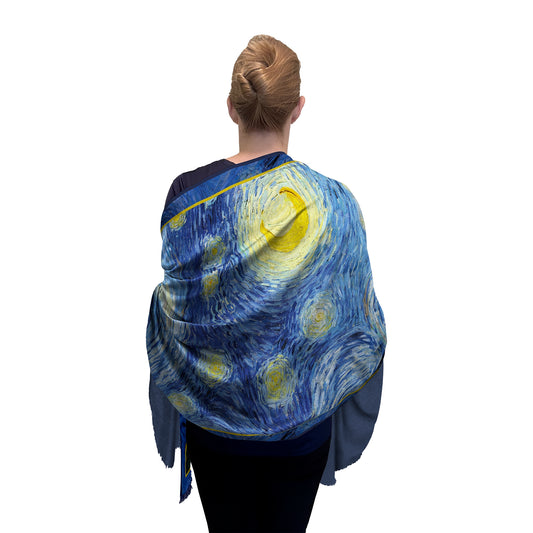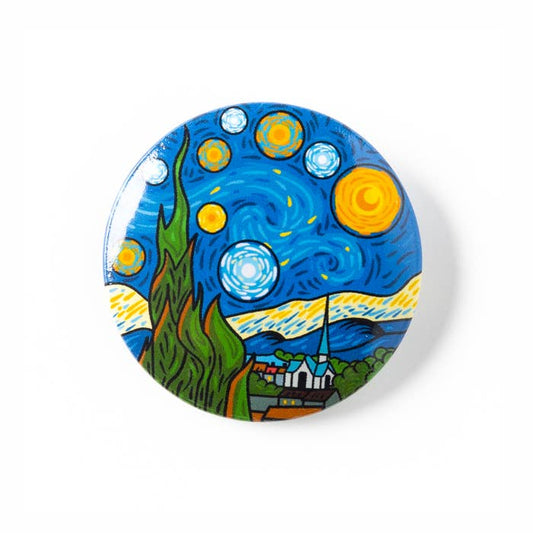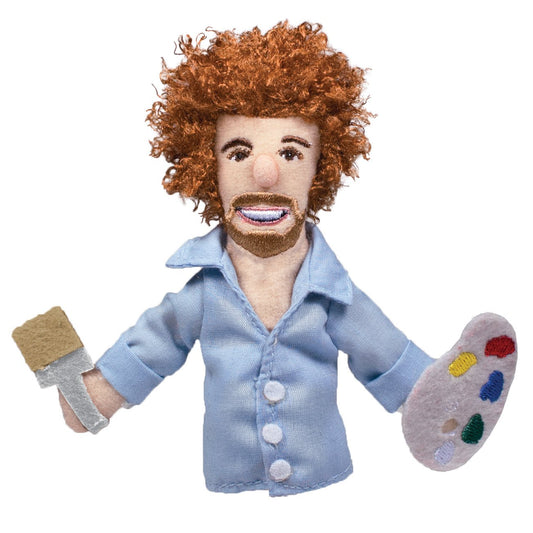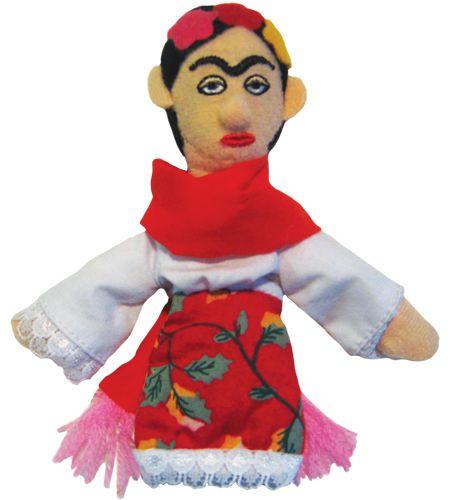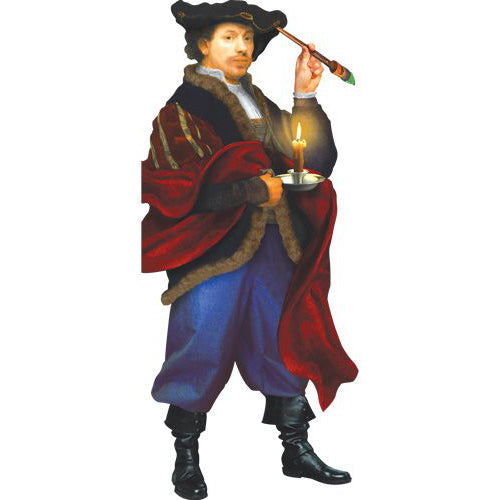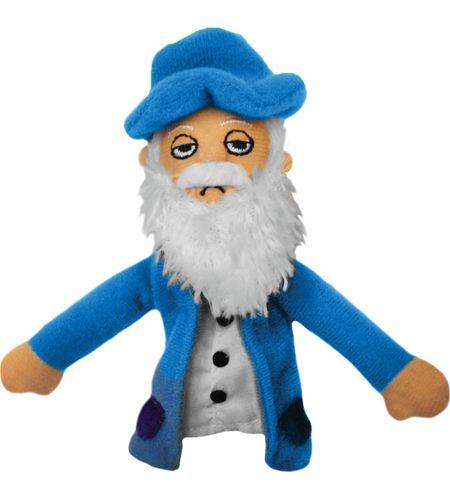Van Gogh Heat-Changing Mug
Van Gogh Heat-Changing Mug
The Unemployed Philosopher's Guild
En existencias
No se pudo cargar la disponibilidad de retiro
- Comes in an illustrated gift box
- Hand wash only; heat-changing mugs are not dishwasher-safe
- Microwave-safe
Product Details
Product Details
- Product type: Mug
- Capacity: 10.0 US fl. oz (295.7 mL)
- Shipping Weight: 1.0 lb (16.0 oz; 454 g)
- SKU: SKU: SKU010003153
- UPC: 814229000242
- Part No.: 0125
In these collections: El gremio de filósofos desempleados, Regalos por menos de $25, Tazas, Todos los productos, Vasos, and Vincent van Gogh.
Share




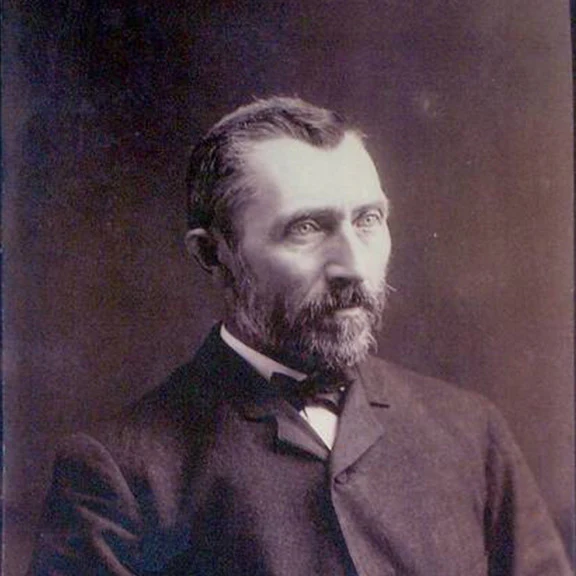
About the
Vincent van Gogh
Vincent van Gogh (1853 — 1890) was a Dutch post-impressionist painter who posthumously became one of the most famous and influential figures in the history of Western art. In a decade, he created about 2,100 artworks, including around 860 oil paintings, most of which date from the last two years of his life. They include landscapes, still lifes, portraits and self-portraits, and are characterized by bold colors and dramatic, impulsive and expressive brushwork that contributed to the foundations of modern art. He was not commercially successful, and his death at 37 came after years of mental illness, depression and poverty. Today, van Gogh is one of the most widely recognized and celebrated artists in the world.
More Vincent van Gogh
-
Tarjetas navideñas con luces de girasol
Precio habitual A partir de $4.50 USDPrecio habitualPrecio unitario / por -
Tarjetas navideñas de Van Gogh
Precio habitual A partir de $4.50 USDPrecio habitualPrecio unitario / por -
Pato Vincent Van Gogh
Precio habitual $14.99 USDPrecio habitualPrecio unitario / por -
Chal/Bufanda Fine Art: La noche estrellada de van Gogh
Precio habitual $49.00 USDPrecio habitualPrecio unitario / por -
Van Gogh Irises Folding Fabric Hand Fan
Precio habitual $13.95 USDPrecio habitualPrecio unitario / por -
Van Gogh Sunflowers Folding Fabric Hand Fan
Precio habitual $13.95 USDPrecio habitualPrecio unitario / por -
Borrador de orejas de goma
Precio habitual $6.00 USDPrecio habitualPrecio unitario / por -
Botón de arte: "Noche estrellada" de van Gogh
Precio habitual $2.00 USDPrecio habitualPrecio unitario / por -
Chal/Bufanda Fine Art: Almendro en flor de van Gogh
Precio habitual $49.00 USDPrecio habitualPrecio unitario / por -
Van Gogh's Almond Blossom Folding Fabric Hand Fan
Precio habitual $13.95 USDPrecio habitualPrecio unitario / por

About the Brand
The Unemployed Philosopher's Guild
The origins of the Unemployed Philosophers Guild are shrouded in mystery. Some accounts trace the Guild's birth to Athens in the latter half of the 4th century BCE. Allegedly, several lesser philosophers grew weary of the endless Socratic dialogue endemic in their trade and turned to crafting household implements and playthings. (Hence the assertions that Socrates quaffed his hemlock poison from a Guild-designed chalice, though vigorous debate surrounds the question of whether it was a "disappearing" chalice.)
Others argue that the UPG dates from the High Middle Ages, when the Philosophers Guild entered the world of commerce by selling bawdy pamphlets to pilgrims facing long lines for the restroom. Business boomed until 1211 when Pope Innocent III condemned the publications. Not surprisingly, this led to increased sales, even as half our membership was burned at the stake.
More recently, revisionist historians have pinpointed the birth of the Guild to the time it was still cool to live in New York City's Lower East Side. Two brothers turned their inner creativity and love of paying rent towards fulfilling the people's needs for finger puppets, warm slippers, coffee cups, and cracking up at stuff.
Most of the proceeds go to unemployed philosophers (and their associates). A portion also goes to some groups working on profound causes.
-
Museum Store Association Member
The Museum Store Association supports the cultural non-profit retail industry and the people who work in it.
-
Supports Non-profit Organizations
A portion of proceeds is donated to non-profit organizations. See description for details.
-
Designed in USA
Designed in the USA, with global manufacturing or assembly.
More from The Unemployed Philosopher's Guild
-
Marioneta de dedo magnética de Bob Ross
Precio habitual $8.95 USDPrecio habitualPrecio unitario / por -
Marioneta de dedo magnética Frida Kahlo
Precio habitual $8.95 USDPrecio habitualPrecio unitario / por -
Copa de Arte Moderno
Precio habitual $19.95 USDPrecio habitualPrecio unitario / por -
Frida Dreams Mug
Precio habitual $19.95 USDPrecio habitualPrecio unitario / por -
Diego Rivera Magnetic Finger Puppet
Precio habitual $8.95 USDPrecio habitualPrecio unitario / por -
James Baldwin "Little Thinker" Plush Doll
Precio habitual $24.00 USDPrecio habitualPrecio unitario / por -
Tarjeta de notas troquelada de Rembrandt con pegatinas
Precio habitual $3.95 USDPrecio habitualPrecio unitario / por -
Marioneta de dedo magnética de Claude Monet
Precio habitual $8.95 USDPrecio habitualPrecio unitario / por -
Marioneta de dedo magnética de James Baldwin
Precio habitual $8.95 USDPrecio habitualPrecio unitario / por -
Marioneta de dedo magnética de Vincent van Gogh
Precio habitual $8.95 USDPrecio habitualPrecio unitario / por








